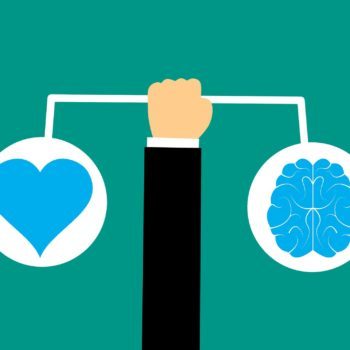The Seven Component Skills of Empathy

The Seven Component Skills of Empathy
Since Empathy is a master competency of highly effective people, it would valuable to explore and unpack its related competencies and skills that contribute to incorporating Empathy into your personal leadership repertoire.
Let’s look at the seven inter-related emotional and social intelligence skills to build our capacity for Empathy.
1. Recognizing Emotions
The key doorway into interpersonal Empathy is the ability to recognize emotions. What is amazing about the capacity to recognize human emotions is that, despite significant cultural or even vast global geographical differences between people, we humans can all universally recognize that when we see someone smile, this means that person is pleased or happy; or when we see a scowl, this facial expression may mean that person could be angry, frustrated, or disgusted.
- This “universality” of human emotions allows us to read facial expressions and attune to other people and their inner states, which gives us key data to begin to understand and empathize with their concerns and wherever possible, meet their needs.
The competency of recognizing emotions can be consciously learned. In fact, professionals involved in police detective work and criminal interrogations are highly trained to recognize emotions, even passing and fleeting micro facial expressions, eye movements and body language for key bits of information on what people are actually feeling and thinking, even if their words are different.
- In like manner, when we attune to and observe another person more carefully, we can recognize emotions that will help us understand them, work with them better, and even influence them more effectively.
2. Primal Empathy
This aspect of Empathy has a strong brain / biology component. Scientists suggest we have a “social brain”, that has an evolutionary capacity for a type of “neural Wi-Fi”, that can pick up, attune to and “feel with” what others may be feeling, including sensing their non-verbal emotional signals.
3. Attunement
A skill that is closely related to Primal Empathy is Attunement. Attunement is a social awareness skill that is central to being an empathic person and leader. At the interpersonal level, it can simply mean the ability to listen with full receptivity to another person, attune to their moods, concerns and needs in an emotionally synchronous way. Attunement is a hugely important skill for Empathic Listening, a type of deeper interpersonal listening that is one of the key skills of leaders who are considered “empathic”.
4. Cognitive Empathy
This component of Empathy is the ability to listen to and understand another person’s perspective. It does not mean that you necessarily agree with the other person’s perspective, but you cognitively understand the other person’s perspective and concerns (even if you disagree). It is critical to fully understand another person and what they are thinking and feeling, and why they feel a certain way.
5. Empathic Accuracy
This Empathy skill is a deeper refinement of the skill of Cognitive Empathy. Empathic accuracy is the accuracy at which you can accurately understand another person’s thoughts, feelings, and intentions.
It’s the almost uncanny ability to accurately “read people” although it is happening at multiple levels at the same time: cognitively / intuitively, emotionally, and physically.
- An example of this occurs in close relationships like marriages, where some couples know each other so well and can “read” each other so well, they may be able to accurately finish sentences for each other!
6. Emotional Empathy & Social Cognition
These related components of Empathy are the ability to be socially aware of, perceive and attune to another person’s feelings, needs and concerns, the so-called ability to “walk in another shoe’s”; or the ability to perceive the feelings, needs, concerns and moods of a group.
In general terms, when thinking of Empathy as a skill, this is the type of Empathy we mean. To be strong in emotional Empathy means you truly care about another’s feelings; you are sensitive to, relate to and respect the feelings of others; and you try to avoid hurting the feelings of others. And wherever possible, if appropriate, you try to address their needs and concerns.
Social Cognition
Emotional Empathy is also the doorway into the ability to perceive the feelings or moods of a team or group, and the relationship dynamics in a group, otherwise known as the ability for Social Cognition. This is a very useful skill for managers and team leaders as emotions in a group can be highly contagious, either on the positive side, or the negative side (that neural Wi-Fi again!).
Emotional Empathy, and the related skill of Social Cognition at the group level, are foundational skills, and correlate highly to the role of a leader motivating people and teams, and engaging people in positive change. Emotional Empathy and Social Cognition also help leaders diagnose and find ways to interrupt patterns in a group or team that has become pessimistic or disaffected.
Emotional Empathy and Social Cognition are also a doorway to access the organizational-level Empathy-based skill known as Political Awareness, the ability to read an organization’s emotional currents and power relationships.
7. Political Awareness
Political Awareness is a skill that uses a capacity for Empathy as a key input. The skill of Political Awareness means you can read the feelings, needs and concerns of individuals that comprise an entire group or part of an organizational system.
- You can perceive both the individual’s concerns and feelings, but also see how these individual’s emotional currents and their relationships between other individuals and the larger group all interact to create the “emotional fabric” of the organization.
Included in this skill is the ability to empathize and accurately read how the power relationships in the group operate, and how decision-making, resources, and power are dynamically influenced and allocated at the organizational level.
- Some empathic professionals and leaders are very good at the skill of Political Awareness and navigate the emotional and power dynamics of an organization very well. This skill can be learned to increase your Political Awareness of these crucial social, emotional and power dynamics at the organizational level.
Effective Change is Integral
Since 1990, in our change management consulting and facilitation work in organizations, we have found that when leaders try to create positive organizational change, it is essential to find proven ways to increase individual and team-based awareness and skills for effective personal change and team change.
To engage your leadership team or work teams in developing skills and competencies like Empathy, see our innovative programs on building Social and Emotional Intelligence for teams or your organizational leaders.
- 0 Comments



0 Comments